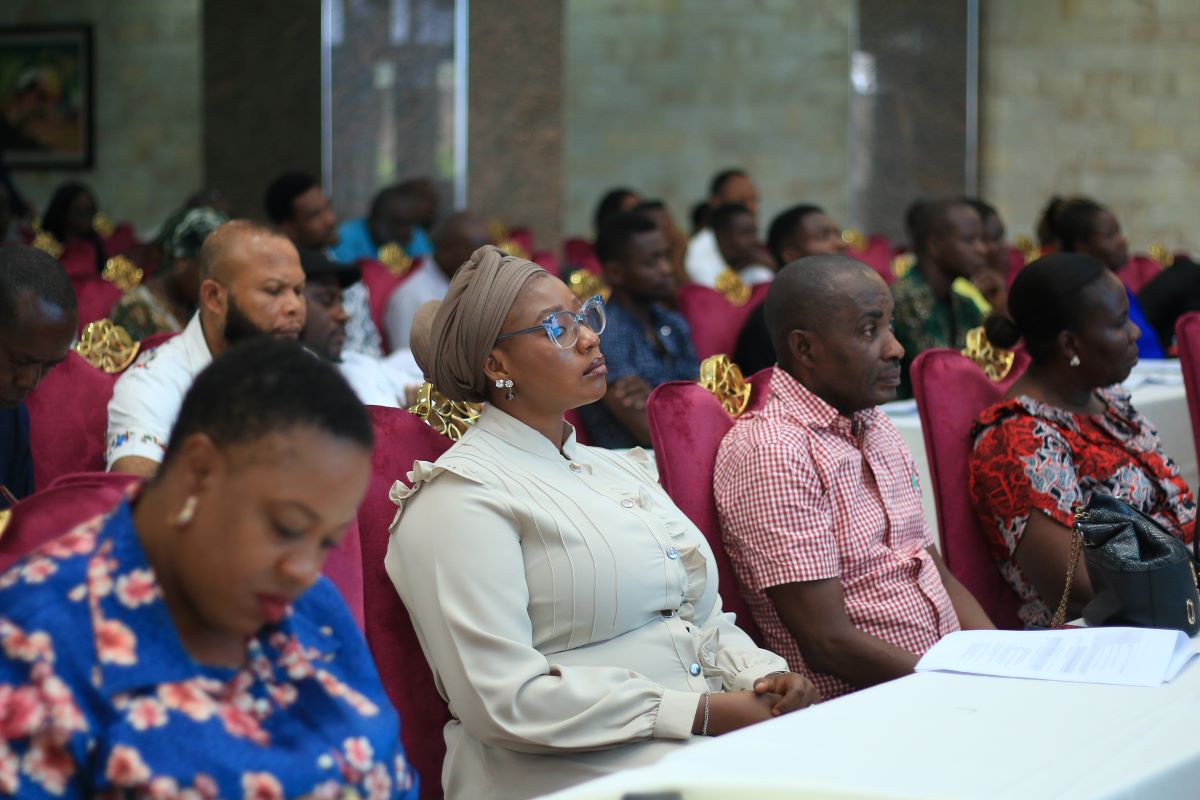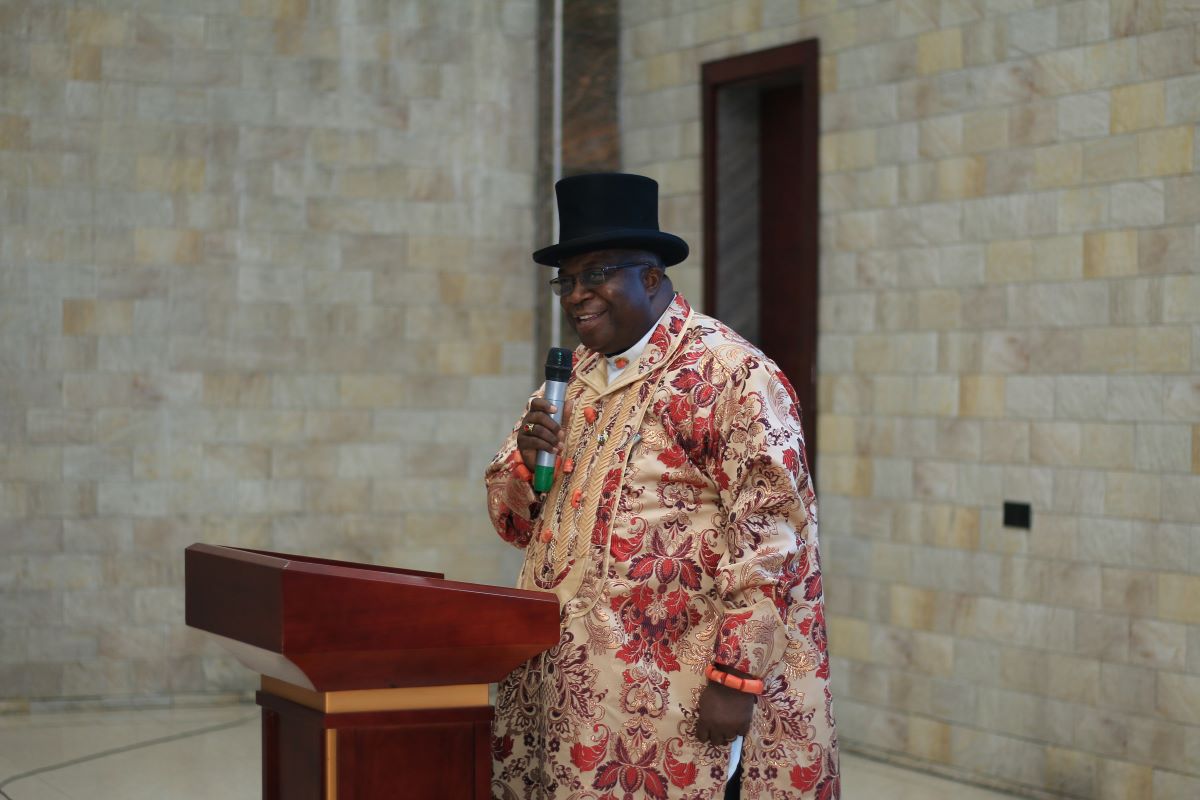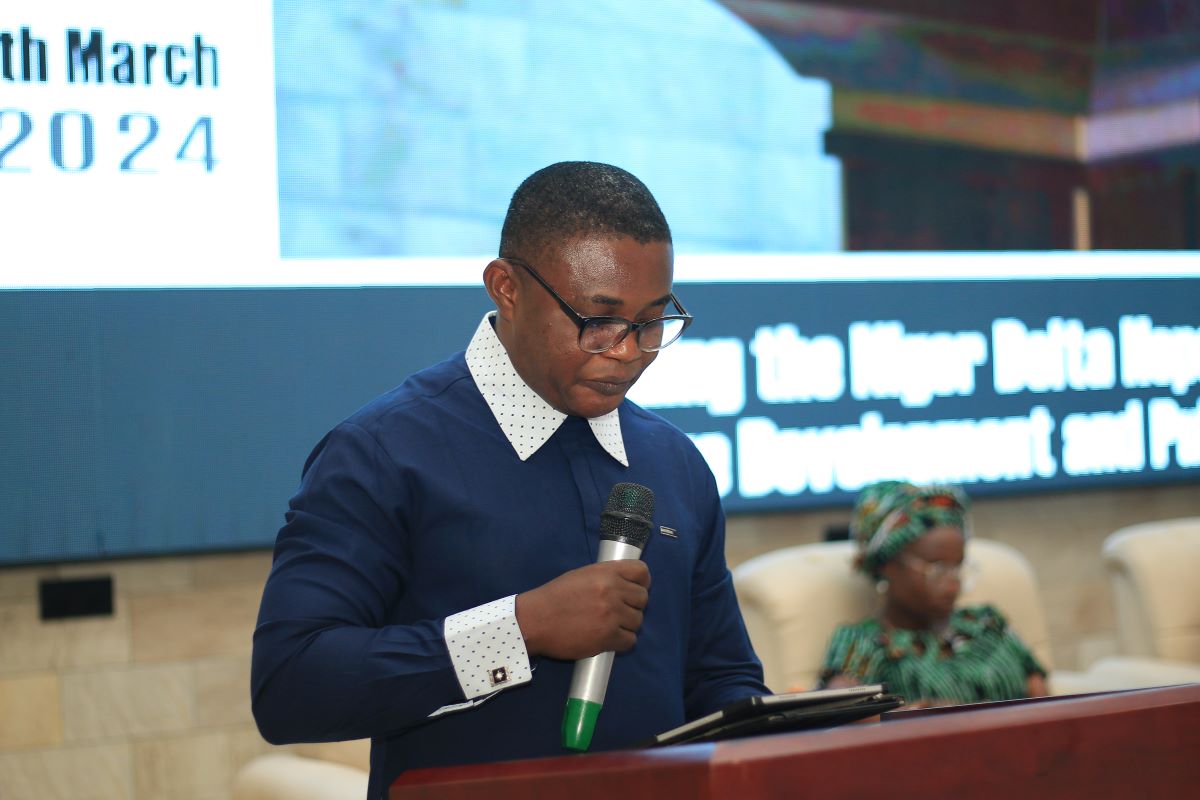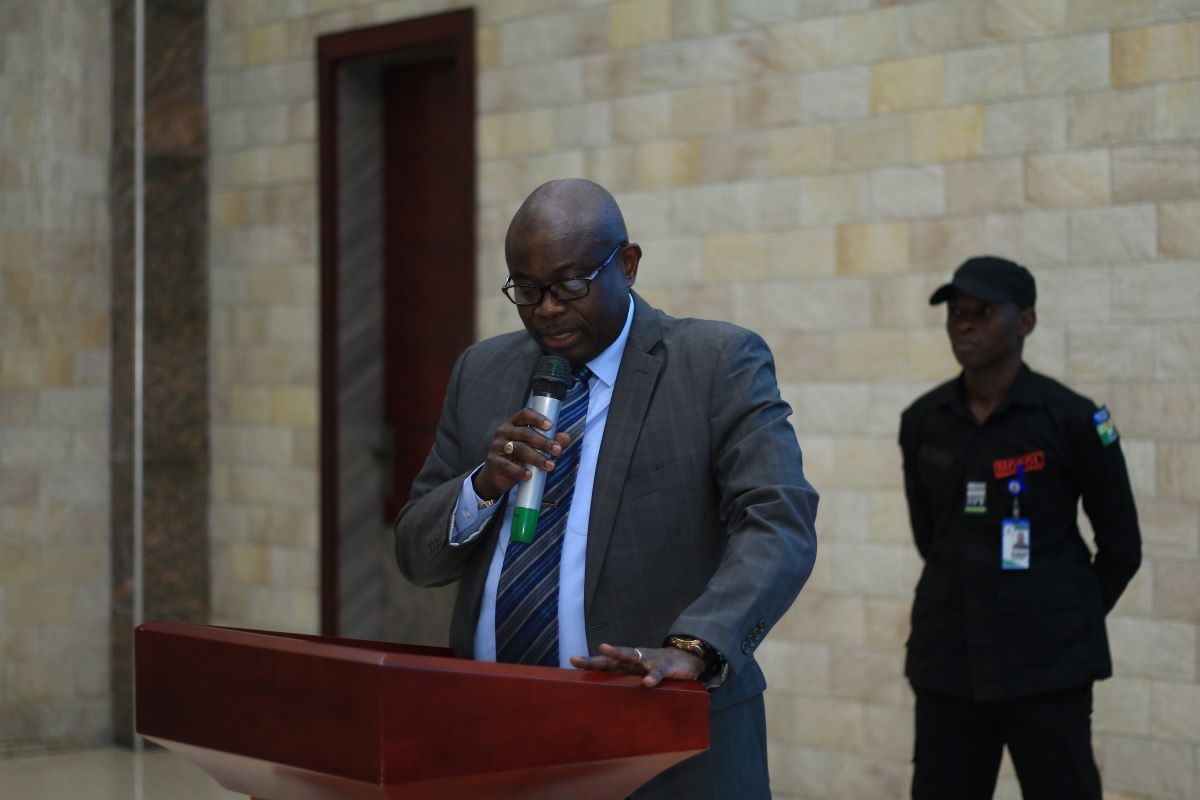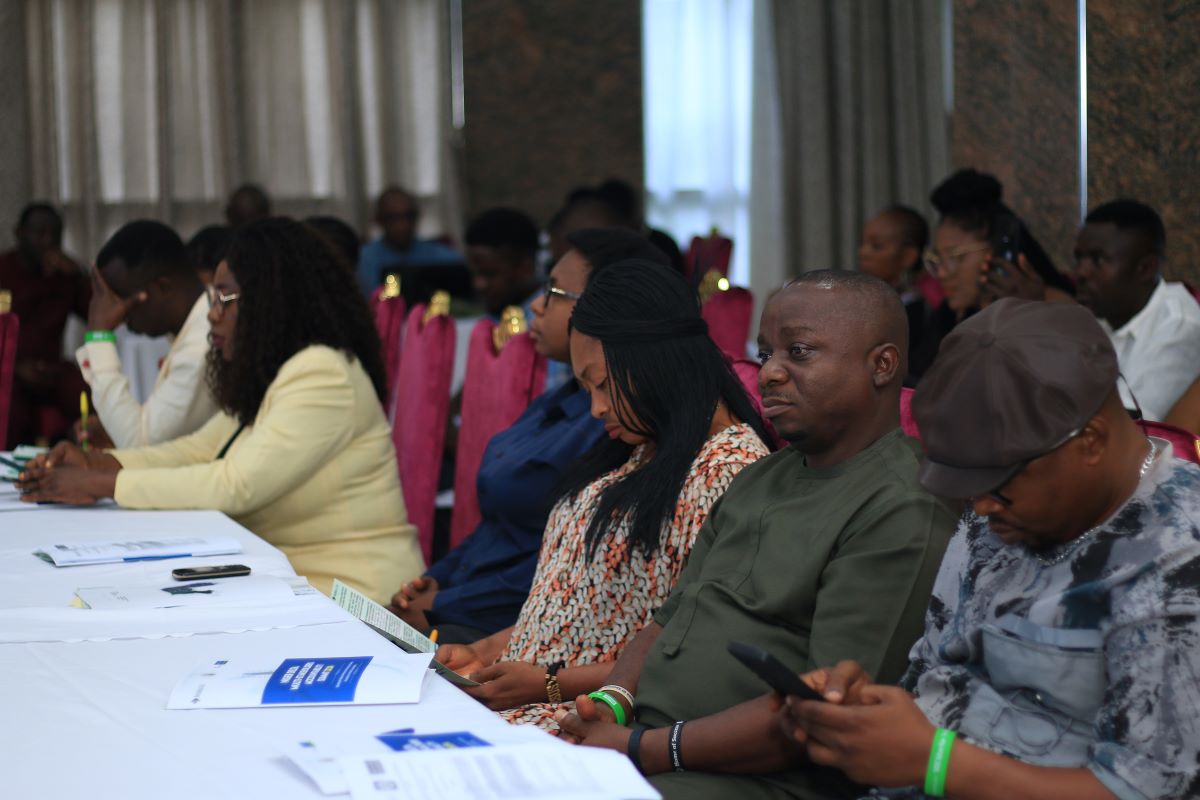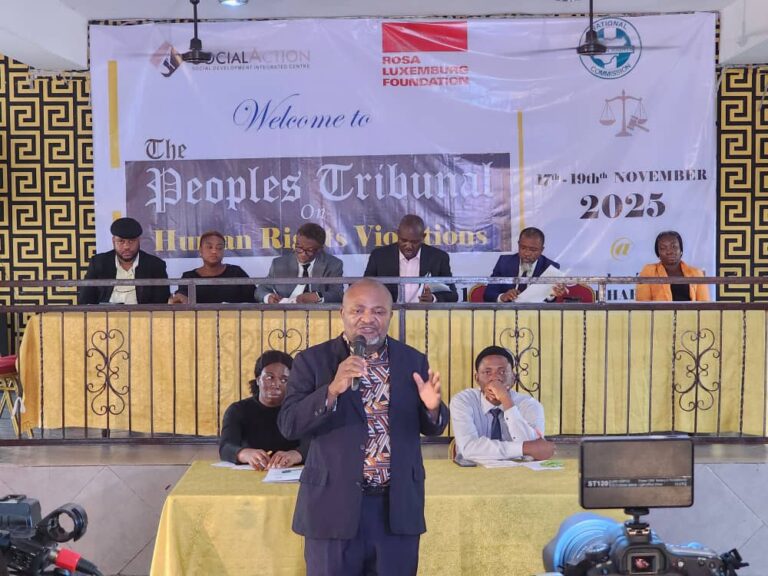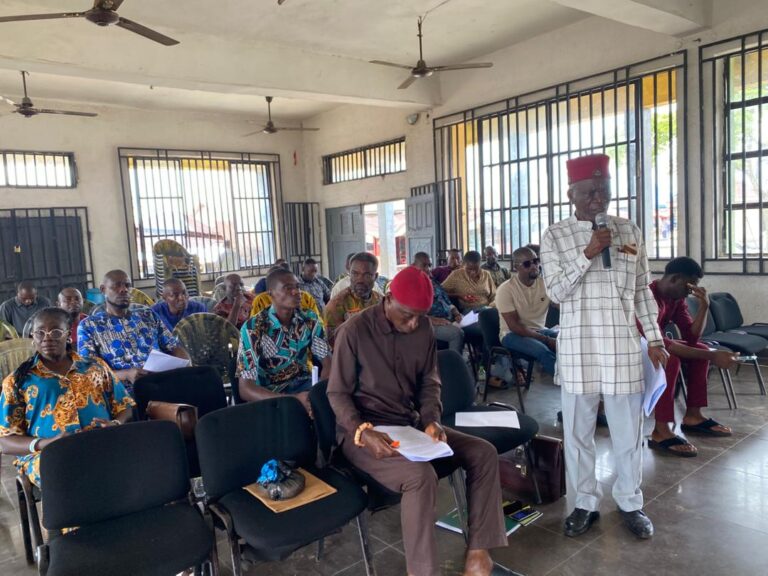Niger Delta Multi- Stakeholders Development And Accountability Summit 2024
CSOs, experts, community groups advocate for transparency and accountability for economic and social development and pressed for historical responsibility of IOCs in petroleum extraction in the Niger Delta.
On March 7th, 2024, at the Osborn La Palm Royal Resort in GRA Phase 3, Port Harcourt, Rivers State, the Social Development Integration Centre – Social Action, organized a one-day Niger Delta Multi-Stakeholders Development and Accountability Summit. The summit, held under the theme “Building the Niger Delta Hope: Collaborating for Inclusive Development and Public Accountability,” aimed to advocate for transparency and accountability in the management of proceeds from natural resources, particularly oil and gas.
Stakeholders from diverse sectors including traditional rulers, anti-corruption agencies such as the Independent Corrupt Practices and Other Related Offenses Commission (ICPC), academia, Civil Society Organizations (CSOs), media, community leaders, policymakers, industry professionals, and active citizens from the Niger Delta region and beyond attended the summit.
The event, facilitated by the Social Development Integration Centre (Social Action) in collaboration with ICPC and with the support of the MacArthur Foundation, centred around three core objectives:
1. Enhance Multi-Stakeholders Dialogue: The summit aimed to facilitate broad-based conversations to reimagine the Niger Delta Development Commission’s (NDDC) role and explore new avenues for transformative regional development.
2. Cultivate Collaboration: Stakeholders aimed to strengthen partnerships among various stakeholders to advance the developmental agenda of the Niger Delta region.
3. Embed Accountability: The summit sought to integrate principles of accountability into public projects, addressing the developmental needs of the Niger Delta and promoting inclusive, sustainable growth.
The summit featured presentations, panel sessions, and a question-and-answer session where feedback was gathered, leading to the adoption of several resolutions by the participants.
Eze Epara Rebisi XII, HRM Eze (Barr) Uche Isaiah Elikwu JP giving his fatherly blessing
Botti Isaac, Programmes Coordinator standing in for Dr Isaac Osuoka, Director Social Action International
Barr. Clifford Okwudiri Oparaodu Esq, giving his opening remark
Dr. Isaac Osuoka, Director of Social Action International, opened the Niger Delta Multi-Stakeholders Development and Accountability Summit in Port Harcourt on March 7, 2024. He emphasized the urgent need for transformative change in the region, focusing on accountability in the face of environmental degradation and social injustices. Dr. Osuoka called for concrete actions from President Bola Ahmed Tinubu to address the ongoing divestment process by international oil companies and ensure environmental cleanup, equitable compensation, and sustainable practices
Goodwill messages were delivered by representatives of the ICPC, HYPREP, as well as the governments of Edo, Akwa Ibom, and Bayelsa States. Additionally, a fatherly blessing was bestowed by Eze Epara Rebisi XII, HRM Eze (Barr) Uche Isaiah Elikwu JP, DSSRS. HRM lamented the underdevelopment of the Niger Delta despite its heavy burden as the region responsible for over 80% of the country’s exports. He expressed disappointment that the NDDC has not fulfilled its purpose since its establishment, nor met the expectations of the Niger Delta.
The Secretary to the Independent Corrupt Practices and Other Related Offences Commission, Hon Clifford Okwudiri Oparaodu Esq, provided an overview of the challenges faced by the Niger Delta and the rationale behind the creation of intervention institutions such as OMPADEC and later the NDDC in 2001. He defended the establishment of the NDDC and urged citizens to participate in the entire process from budget creation to project execution, emphasizing the importance of monitoring project quality and timeliness in their communities. He also advised community youth to consider NDDC projects as beneficial to their own interests and therefore to protect them.
A cross section of participants at the summit
Group photo of all participants
Panellists analysing the topical issues during the panel session
The panel session included representatives from CSOs, community leaders, experts in petrochemical and related fields, legal professionals, and government representatives. During the discussions, opinions were raised regarding the NDDC’s underperformance and the roles community members could play. It was acknowledged that corruption contributed to the NDDC’s shortcomings, but suggestions were proposed for improvement and methods for measuring NDDC’s performance within a specified timeframe.
Other contributors were discontented with the fact that the Commission has done little or nothing to “tackle ecological and environmental problems that arise from the exploration of oil mineral in the Niger-Delta area and advise the Federal Government and the member States on the prevention and control of oil spillages gas flaring and environmental pollution” according the NDDC Act 7(h).
They wonder why the NDDC is not doing anything to make the oil multinationals accountable for environmental and social impacts of petroleum extraction in the Niger Delta in line with the Act establishing it. They also felt the PIA is a fraud against the oil-bearing communities and only crafted to favour the state and the oil companies.
Panellists and contributors agreed that transparency, accountability and inclusiveness in budget conception and execution are necessary to make the Commission a viable and responsive agency capable of fulfilling their mandate to deliver development to the people and communities of the Niger Delta. They also identified concerted efforts from NNDC, anti-graft agencies and citizens as a necessary panacea to promote synergy towards collective growth.
Some of the key recommendations and resolutions adopted include:
- The NDDC should live up to their mandate to address environmental issues, including pollution prevention, environmental conservation, and protection of natural resources within the Niger Delta region
- Advocating for transparency and accountability in government and community businesses.
- Ensuring the protection of all NDDC projects and installations.
- Monitoring and reporting on all NDDC project executions to ensure quality.
- Promoting the adoption of the National Ethics and Integrity Policy (NIEP).
- Promoting good governance at all levels and enforcing sanctions for non-compliance with procurement laws.
- Encouraging Niger Delta youth to advocate for accountability, transparency, and hard work.
- Emphasizing the need for effective communication and knowledge sharing between operators (IOCs) and primary stakeholders during the divestment process and energy transition.
- Implementing technology in all procurement processes and organizing capacity-building training to tackle corruption.
- Introducing community accountability measures to ensure judicious use of resources by the ICPC.
- Calling for state-level plans for a Niger Delta beyond oil, clean-up programs for the region, and diversification into tourism to generate revenue.
The summit provided a platform for stakeholders to engage in constructive dialogue, exchange ideas, and formulate actionable recommendations towards the development and accountability in the Niger Delta region.

